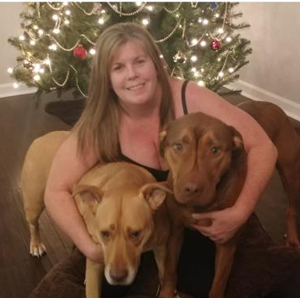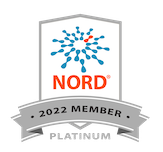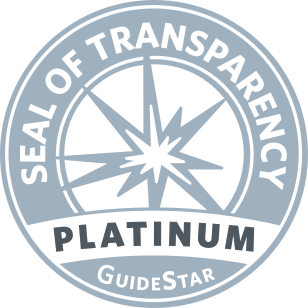Faith, Hope, and a Found Gene
Beacon Stories
“I try not to get my hopes up too much, but I never lose hope; I’m determined. I just want to see my son’s face, see him get married, & see my grandchildren. I encourage everyone with a retinal disease to get a genetic test & to never ever give up hope.“
by Ben Shaberman

Though Michelle Hatley was challenged early in life by the retinitis pigmentosa (RP) that was causing night blindness and a shrinking visual field, she wasn’t overwhelmed by the retinal disease, because she was able to do most of the activities she loved to do.
“I wasn’t scared, because I could still see pretty well,” she recalls. “Growing up, I did everything myself. I’d come and go as I pleased. I went out with my friends and would go clubbing and dancing. That was my thing.”
But a reckoning with her progressive eye disease came at the age of 22 when she realized she had to stop driving. “I pulled out in front of a moving car — I just didn’t see it,” she recalls. The near-miss shook her up. “I got very upset. I could have hurt someone or myself. So I turned in my license and sold my car, an Eclipse GT. I loved my car. It was everything to me. I worked very hard for it.”
Eventually, Michelle also had to give up her work in property management and customer service. “I miss working a lot,” she says. “I am a people person, and now I am secluded. It drives me crazy.”
Though she doesn’t get out as much as she’d like, Michelle gets a lot of comfort from her dogs — two rescues. “They are wonderful. I love them to pieces. Sometimes they blend in with the floor or the carpet, and I accidently kick them, because I can’t see them, but I think they understand.”
She also gets support from her husband, Adam; 18-year-old son, Cameron; and family and friends.
Michelle’s biggest challenge at the moment is blurry central vision. She says it is like looking at a foggy mirror. She’s learning to use voice-activation — Siri on her iPhone — to gain more access to the outside world.
The recent discovery of her mutated RP gene — a process which began serendipitously — has boosted her hopes for a cure someday to save and restore vision. “I was watching ‘America’s Got Talent,’ and there was a 16-year-old boy on the show named Christian Guardino who had lost his sight, but had it restored by gene therapy,” she recalls. Christian had received Spark Therapeutics’ RPE65 gene therapy in a clinical trial.
“After the show, I called my low-vision specialist, Dr. Laurie Hoffman. She said Christian’s gene was likely different from mine, but a representative from Spark happened to be stopping by her office to give her a kit for free genetic testing for her patients.”
About a month after Dr. Hoffman sent Michelle’s saliva for testing off to Spark, the result came in. “Laurie called me up and said they had found my gene, PRPF8,” says Michelle. “We were ecstatic!”
Realizing that identification of the gene was a step forward for access to a future clinical trial or treatment, Michelle has a brighter outlook for her vision. “I try not to get my hopes up too much, but I never lose hope. And, I never ever lose faith. I am determined I am not going to lose my sight. I just want to see my son’s face, see him get married, and see my grandchildren. I encourage everyone with a retinal disease to get a genetic test. And, I tell them to never ever give up hope.”
Inspired to help the Foundation Fighting Blindness fund research for treatments and cures, Michelle raised $4,000 for the Charlotte VisionWalk. “I had a lot of fun at the walk. It was a good time. And, I adore Lesley Ireland (FFB event manager).”
Michelle has also registered with www.MyRetinaTracker.org, the Foundation’s secure patient registry, to learn about clinical trials for which she may qualify.
One benefit for participants in the Foundation’s My Retina Tracker registry is an opportunity to learn about, and sometimes benefit from, opportunities to participate in a variety of studies and clinical trials. One study currently in progress is a genetic testing study that offers a comprehensive gene panel test and genetic counseling to registry participants.




